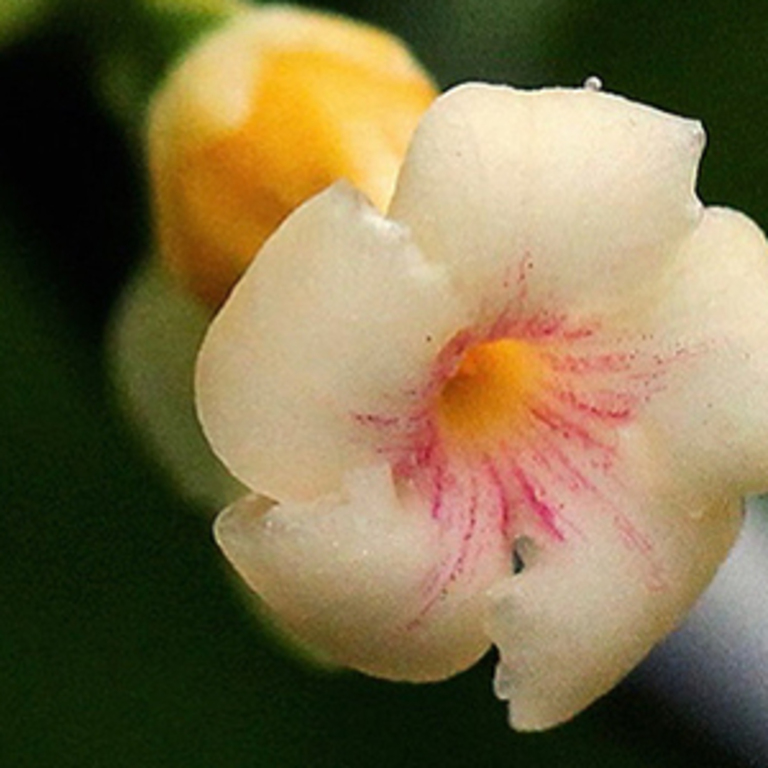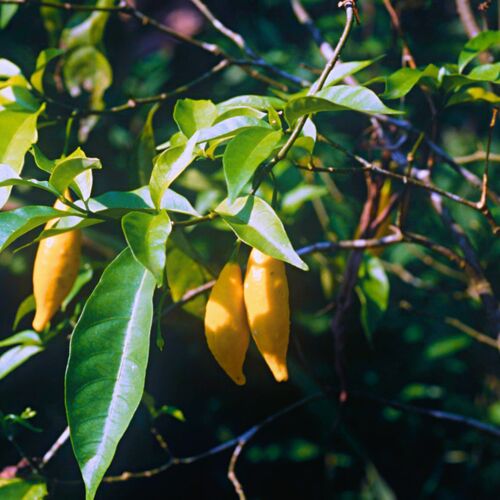Iboga Botany and Sustainability
Information
Tabernanthe Iboga is a shrub growing in the rainforest of West Africa, primarily Gabon. It thrives in warm, humid, tropical conditions and in full sun or partial shade. Iboga commonly grows from 1.5 - 2 meters tall, but under rare circumstances can grow considerably larger, reportedly up to 10 meters.
Iboga has dark green, glossy, elliptical leaves, with brown bark and roots. It has small tubular yellow and pink, flowers. Its fruits are oval yellow/ orange berries, containing small brain shaped seeds.
Iboga is pollinated by insects and its seeds are spread by animals, or when harvested, tossed into the surrounding soil. On other occasions, Iboga is grown from cuttings, to maintain a genetic heritage.
As we know, Iboga is used primarily for its psychoactive compounds, primarily Ibogaine. This is found most richly concentrated in the bark from the roots, which are extremely bitter as a consequence. The older an Iboga plant is, the more potent its concentration of psychoactive alkaloids will be.
Harvesting Iboga root bark can be done in such a way that doesn't kill the plant, but most commonly, the shrub is sacrificed, as the roots are unearthed and stripped of their alkaloid laden bark.
It is interesting to note that humans are not the only beings who take an interest in eating the roots of Iboga trees. Elephants and other creatures such as porcupines, will unearth them and chew on these roots, presumably for the consciousness altering, medicinal properties.
Today there are vast areas of rainforest where Iboga commonly grows, as well as plantations where they are grown for the purpose of harvest and distribution. Monoculture crops are arguably inferior to sustaining biodiversity and letting the plants grow amongst a community of species.
Reports have been made that Iboga is endangered, but these reports have been contested and counter-claims have been made that artificial scarcity has been used by opportunistic, non-indigenous residents of Gabon, to inflate prices and to incentivise capitalistic monopolisation of supply chains, masquerading as ethical endeavours.






